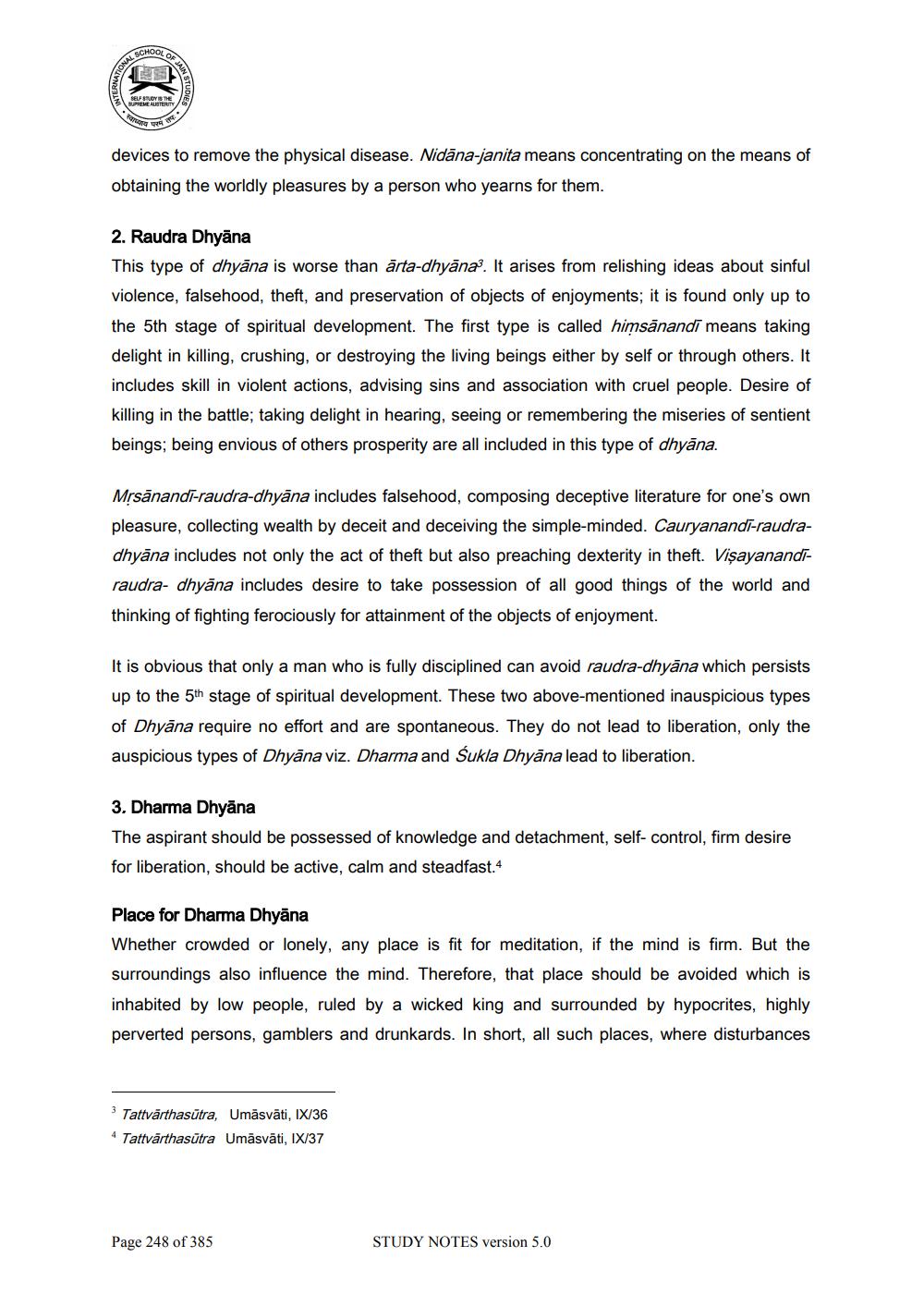________________
INTERNATION
SCHOOL
OF
SELF STUDY IS THE
SUPREME AUSTERITY
स्वाध्याय
परम
AN STUDIES
devices to remove the physical disease. Nidana-janita means concentrating on the means of obtaining the worldly pleasures by a person who yearns for them.
2. Raudra Dhyana
This type of dhyāna is worse than arta-dhyāna3. It arises from relishing ideas about sinful violence, falsehood, theft, and preservation of objects of enjoyments; it is found only up to the 5th stage of spiritual development. The first type is called himsanandī means taking delight in killing, crushing, or destroying the living beings either by self or through others. It includes skill in violent actions, advising sins and association with cruel people. Desire of killing in the battle; taking delight in hearing, seeing or remembering the miseries of sentient beings; being envious of others prosperity are all included in this type of dhyāna.
Mrsanandi-raudra-dhyāna includes falsehood, composing deceptive literature for one's own pleasure, collecting wealth by deceit and deceiving the simple-minded. Cauryanandi-raudradhyāna includes not only the act of theft but also preaching dexterity in theft. Vişayanandiraudra- dhyāna includes desire to take possession of all good things of the world and thinking of fighting ferociously for attainment of the objects of enjoyment.
It is obvious that only a man who is fully disciplined can avoid raudra-dhyāna which persists up to the 5th stage of spiritual development. These two above-mentioned inauspicious types of Dhyana require no effort and are spontaneous. They do not lead to liberation, only the auspicious types of Dhyana viz. Dharma and Sukla Dhyana lead to liberation.
3. Dharma Dhyana
The aspirant should be possessed of knowledge and detachment, self-control, firm desire for liberation, should be active, calm and steadfast.4
Place for Dharma Dhyana
Whether crowded or lonely, any place is fit for meditation, if the mind is firm. But the surroundings also influence the mind. Therefore, that place should be avoided which is inhabited by low people, ruled by a wicked king and surrounded by hypocrites, highly perverted persons, gamblers and drunkards. In short, all such places, where disturbances.
3 Tattvärthasūtra, Umāsvāti, IX/36
A Tattvärthasūtra Umāsvāti, IX/37
Page 248 of 385
STUDY NOTES version 5.0




